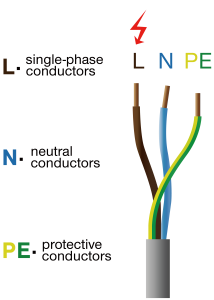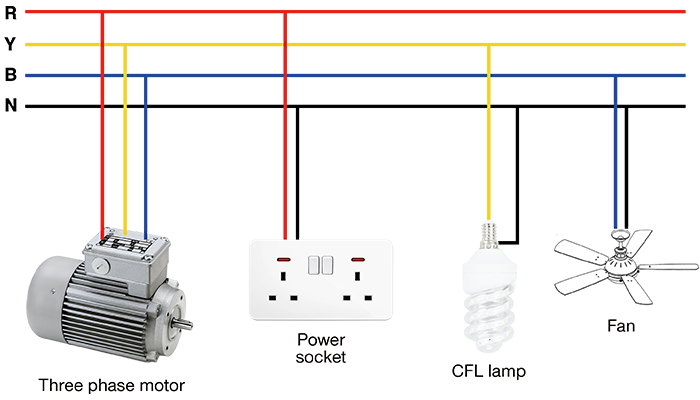If you plan to install solar or solar battery for your home, there is a question which the engineer would certainly ask you that is your home single or three phase?
So today, let’s figure out what it actually means and how it works with solar or solar battery installation.

What does single phase and three phase mean?
It is no doubt that the phase we always talked about refers to the distribution of the load. Single phase is one wire supporting your whole family, while three phase is three wires to support.
Typically, single-phase is one active wire and one neutral connecting with the house, while three-phase is three active wires and one neutral connecting with the house. The distribution and structure of these wires are attributed to the distribution of the loads that we just talked about.
In the past, most houses used single-phase to power lights, refrigerators and televisions. And nowadays, as we all know, there is not only the popularity of electric vehicles, but also in the home where most of the appliances are hung on the wall and something turns on whenever we speak.
Therefore, three-phase power came into being, and more and more new buildings are using three-phase. And more and more families have a strong desire to use three-phase power to satisfy needs in their daily life, which is because three-phase has three phases or wires to balance the load, whereas single-phase has just one.

How does they install with solar or solar battery?
The installation between three-phase solar and single-phase solar is similar if you have already had a three-phase power in your house. But if not, the process of upgrading from single-phase to three-phase solar is the hardest part during the installation.
What is the main difference in a three-phase power installation? The answer is the type of inverter. In order to adapt the power for the household use, a single-phase solar + battery system usually uses a single-phase inverter to convert the DC power which is stored in the solar cells and batteries into AC power. On the other hand, a three-phase inverter will be used in a three-phase solar + battery system to convert the DC power into AC power with three evenly distributed phases.
Also some people they may prefer the three-phase power source with the largest load can be fitted with a single-phase inverter. But then the risk will increases afterwards and it is difficult to manage the energy from the different phases. At the same time cables and circuit breakers are incredible for these components to connect the system.
To some extent, the cost of installing a three-phase solar + battery system may be higher than a single-phase solar + battery system. This is because three-phase solar + battery systems are bigger, more expensive, and more complex and time-consuming to install.
How to choose single-phase or three-phase power?
If you would like to make a best choice to choose a three-phase or single-phase solar system, it depends on the specifics of the electricity usage. When the demand for electricity is high, a three-phase solar system is the best choice. So it is beneficial for commercial power, homes with new energy vehicles or swimming pools, industrial power, and some large apartment buildings.
Three-phase solar system has many advantages, and the three major advantages are: stable voltage , even distribution and economical wiring. We will no longer be annoyed by the unstable electricity use because smooth voltage will reduce the risk of damage to appliances, while balanced power will reduce the risk of short circuits. In this way, although three-phase solar systems are costly to install, the cost of the materials used in supplying the electricity is much lower.

However, if you don't need a lot of power, a three-phase solar system is not an optimal choice. As an example, the cost of inverters for three-phase solar systems is high for some components, and in the event of damage to the system, the cost of repairs will increase due to the high cost of the system. So in our daily life we do not require a lot of power, a single-phase system can totally satisfy our need, the same for most family.







